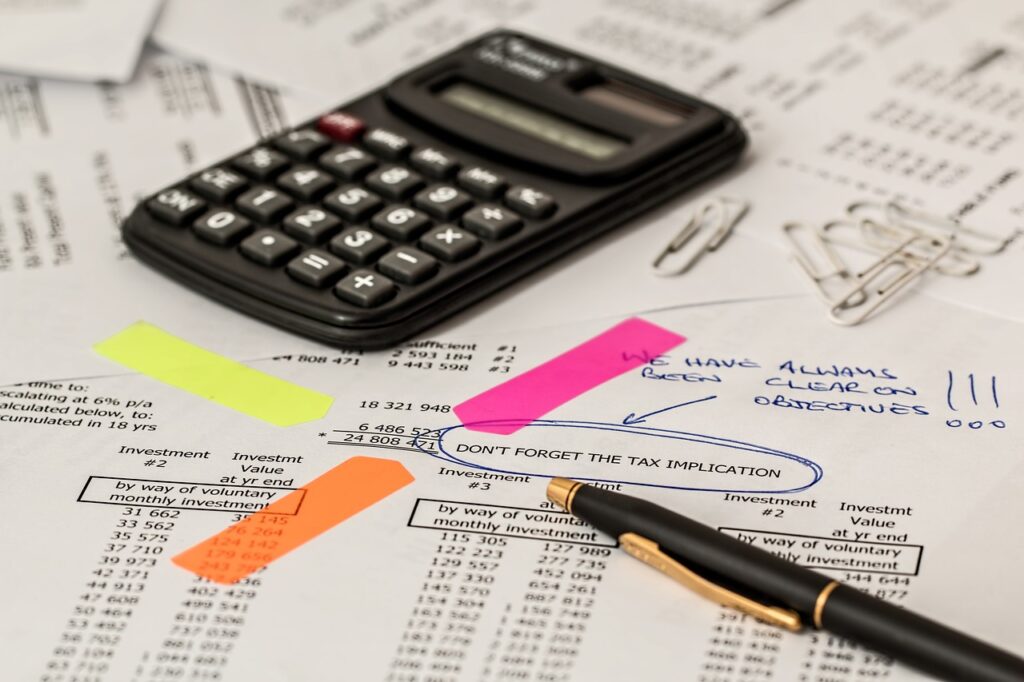Accounting in Denmark is governed by a well-organized legal and regulatory system that ensures transparency, compliance, and fiscal responsibility for all businesses. Whether you run a small ApS, a growing startup, or a foreign company entering the Danish market, understanding how accounting works is essential. This article will walk you through the key accounting practices in Denmark, including bookkeeping rules, reporting obligations, tax compliance, audit requirements, and the use of digital tools. Designed to help business owners navigate financial responsibilities with confidence, this guide will equip you with the knowledge needed to succeed in the Danish business environment.
Legal Framework and Financial Reporting Classes
Danish accounting is regulated by the Danish Financial Statements Act (Årsregnskabsloven), which incorporates EU accounting directives and aligns with international reporting standards. The Act classifies businesses into four groups (A to D) based on size, turnover, and legal structure:
- Class A: Sole proprietors and micro-enterprises
- Class B: Small companies (typically ApS)
- Class C: Medium and large private companies
- Class D: Publicly listed companies (A/S)
Each class determines the level of detail required in annual reports, audit requirements, and whether companies must adhere to Danish GAAP or IFRS. Smaller companies benefit from simplified reporting, while larger ones are held to stricter standards to protect shareholders and the public interest.
Bookkeeping Requirements for Danish Companies
All businesses in Denmark must keep detailed and accurate bookkeeping records that reflect their financial activities. These records must follow the double-entry bookkeeping method and must be stored securely for at least five years.
Essential records include:
- Sales and purchase invoices
- Bank statements
- Payroll documents
- Contracts and receipts
- VAT documentation
Bookkeeping can be done manually, outsourced to professional bookkeepers, or managed through cloud-based accounting software. Whatever the method, the goal is to ensure that your records can be verified and traced for tax, audit, and reporting purposes.
Danish authorities allow digital bookkeeping, and many entrepreneurs rely on software tools that simplify accounting processes and ensure full compliance with local regulations.
Corporate Taxation and VAT Obligations
Understanding tax obligations is a core part of accounting Denmark. Businesses must comply with various tax rules, primarily:
- Corporate Income Tax: Companies are subject to a flat rate of 22% on taxable profits. Tax returns must be filed annually, and taxes must be paid in installments throughout the year.
- Value Added Tax (VAT): Known in Denmark as moms, VAT applies at a standard rate of 25%. Businesses must register for VAT if annual turnover exceeds 50,000 DKK. VAT returns are submitted monthly, quarterly, or biannually depending on the size of the company.
VAT reporting must be precise and timely, including correct treatment of input and output VAT. Many companies use accounting software to automate VAT calculations and filings through the TastSelv Erhverv portal.
Annual Reports and Filing Deadlines
Companies registered in Denmark are required to file an annual report with the Danish Business Authority (Erhvervsstyrelsen). This report reflects the financial position of the company and must include:
- A profit and loss statement
- A balance sheet
- Notes on financial reporting standards
- A management review (for larger companies)
Class A companies are exempt from publishing financial statements, but Classes B, C, and D must submit their reports no later than six months after the financial year ends. Failure to comply with filing obligations can result in penalties or forced company closure.
Audit Requirements and Exemptions
Not all companies in Denmark are required to undergo audits. Audit requirements depend on company classification and financial size. A company is typically exempt from audit if, for two consecutive years, it meets at least two of the following criteria:
- Total assets below 4 million DKK
- Net revenue below 8 million DKK
- Fewer than 12 full-time employees
If a company exceeds these thresholds or operates in a regulated industry, it must be audited by a certified State-Authorized Public Accountant (statsautoriseret revisor). Audits ensure that financial statements give a true and fair view of the business and meet legal standards.
Payroll Accounting and Employer Responsibilities
If your company hires employees, you must handle payroll accounting in accordance with Danish laws. Employers are responsible for:
- Withholding A-tax (income tax) and AM-bidrag (labour market contribution of 8%)
- Reporting wages and tax information through the eIndkomst system
- Contributing to pension funds, holiday pay, and other employee benefits
Payroll must be processed monthly and reported to the tax authorities in real time. Errors in payroll accounting can result in fines and may damage your business reputation. For this reason, many companies use integrated payroll modules within their accounting systems.
Digital Accounting Tools and Automation
Digital tools play a crucial role in modern accounting practices in Denmark. Cloud-based accounting software is widely used for its ability to automate tasks, generate reports, and ensure tax compliance.
Popular accounting tools in Denmark include:
- e-conomic – Comprehensive features suitable for growing businesses and accountants
- Billy – Designed for small business owners with simple needs
- Dinero – Focused on freelancers and startups, with intuitive features for invoicing, VAT, and reporting
These platforms are available in Danish and often integrate with banking systems, SKAT portals, and other business tools. Using them reduces administrative workload and minimizes the risk of compliance errors.
Professional Accounting Services in Denmark
While many small companies handle bookkeeping in-house, professional accountants provide valuable services for tax optimization, strategic planning, and legal compliance. Services typically include:
- Annual report preparation
- Tax return filing
- Financial analysis and planning
- Audit support
- Advisory on company structure and investment
Certified accountants in Denmark must follow ethical standards and are regulated by national bodies. For foreign investors or fast-growing companies, working with an experienced local accountant is a wise investment.
Accounting for Foreign-Owned Entities in Denmark
Foreign companies with a Danish branch or subsidiary must comply with all local accounting, tax, and reporting obligations. Requirements include:
- Registration with the Danish Business Authority
- VAT and tax registration
- Maintaining Danish-language accounting records
- Filing annual financial statements
Many foreign-owned companies choose to work with Danish accounting firms to ensure smooth operations and adherence to local laws. Denmark’s transparency and ease of doing business make it an attractive location for international expansion—provided accounting is done correctly.
Accounting in Denmark is well-structured, transparent, and essential for legal and financial success. From maintaining accurate books and submitting annual reports to handling payroll and VAT, businesses must follow specific rules to remain compliant. With the right tools and professional support, companies can streamline their accounting processes and focus on sustainable growth. Whether you’re a new entrepreneur, an established SME, or managing international operations, understanding Denmark’s accounting requirements is key to building a resilient and compliant business.





